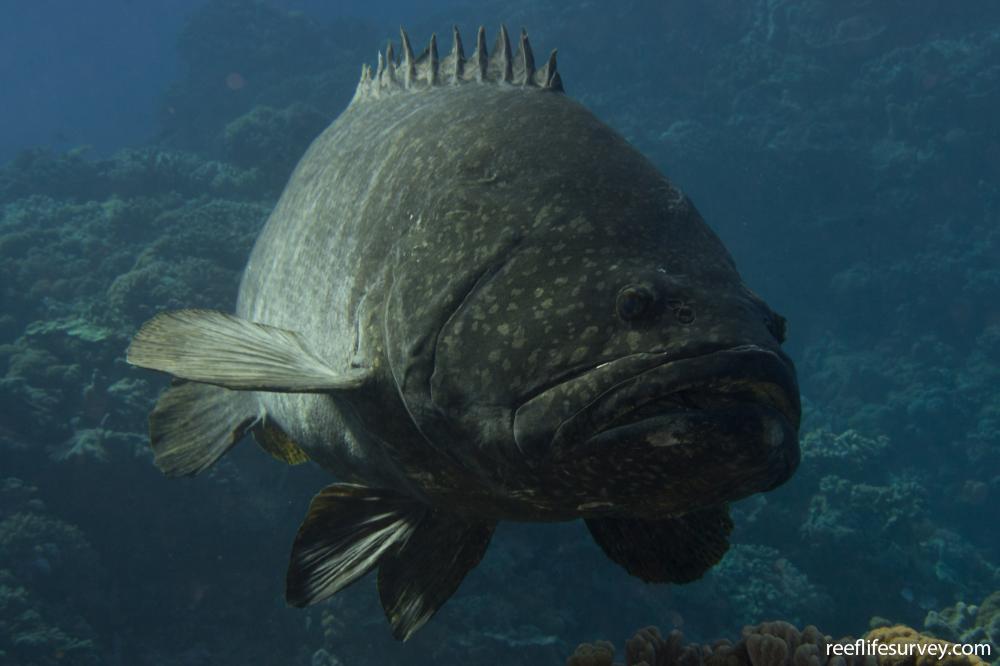Epinephelus lanceolatus
Brindle bassSimilar Species
Same Genus
Distribution
Tropical Indo-Pacific
Description
Distinguishable by it\'s large size. Mottled olive-brown colouration covering body and fins, often with marginal yellow-green tints, small black spots and grey green patches; juveniles with irregular black and yellow markings. Largest fish on coral reefs, growing to 300 kg. Now absent from nearly all fished reefs. Length to 270 cm.
Information
Max Size: 270 cm
Sea Temperature Range: 22.2-31.3°C
Depth: 1-200m
Habitat Generalization Index: 0.68
Also referred to as the SGI (Species Generalisation Index), this describes the habitat niche breadth of the species. Species with values less than 15 are found in a relatively narrow range of reef habitat types (specialists), while those over 25 may be found on most hard substrates within their range (generalists). Learn more here.
Conservation and Rarity
IUCN Status: Vulnerable
Occurrence: Infrequent (1.8% of sites)
Occurrence describes how often the species is found on surveys within its distribution. It is calculated as the % of reef sites surveyed by RLS divers across all the ecoregions in which the species has been observed
Abundance: Solitary (1 per transect)
Abundance is calculated as the average number of individuals recorded per RLS transect, where present.
Edit by: Joe Shields












































